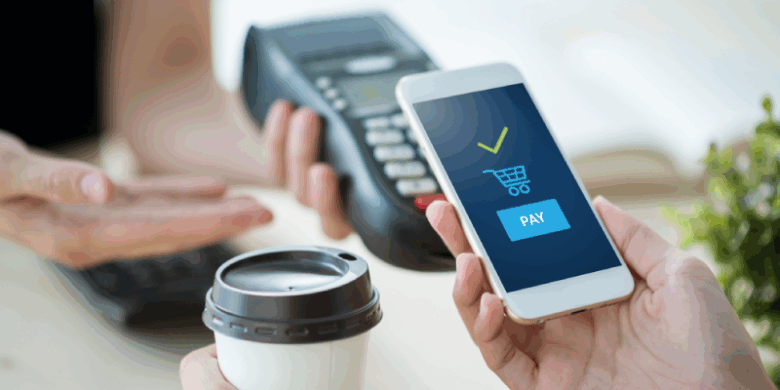In today’s fast-paced digital economy, the modern financial world relies on mobile payments. From paying for groceries with a tap on your phone to quickly transferring money across borders, new technologies are changing the way we use funds. Mobile payments are a significant step toward a cashless society, where speed, security, and convenience define customer behavior. Companies are quickly implementing these solutions to meet demand, and customers are enthusiastic about the seamless experience. As mobile phones become wallets, mobile payments are becoming increasingly important. It’s crucial for companies, financial institutions, and users to understand how and why mobile payments work. This article describes the process, benefits, and impact of mobile payments.
Mobile Payment Process
Mobile payments use digital wallets and payment apps to securely store your financial information on your smartphone. Apps use NFC, QR codes, or mobile platforms to transmit payment information. These systems utilize tokenization technology to hide your card details behind a unique digital identity. This protects your financial information during transactions. When you tap your phone against a payment terminal, an encrypted token replaces your card number. The merchant’s system confirms the transaction, and the payment is processed within seconds. By replacing cash and cards, this process eliminates fraud and increases convenience.
Mobile Payment Security
Mobile payments are popular because of their robust security architecture. Payment providers use fingerprint scanning, facial recognition, and device passwords to verify users’ identities before authorizing transactions. Furthermore, tokenization and end-to-end encryption protect sensitive data. Mobile payment systems detect unusual activity through multi-factor authentication and real-time fraud monitoring. These levels of protection make mobile payments more secure than card payments, which are susceptible to skimming and cloning. This strong security foundation promotes trust and acceptance by both organizations and customers.
What Mobile Payments Mean for Consumers
Mobile payments offer users unparalleled convenience and accessibility. All they need is a smartphone or smartwatch, eliminating the need to carry multiple cards or cash. Transfers in stores, online marketplaces, and peer-to-peer are incredibly quick. This speed reduces wait times and makes everyday transactions simple and straightforward. Many mobile wallets add value by integrating loyalty programs, coupons, and rewards into their apps. Mobile payments contribute to financial inclusion, especially in regions without traditional banks. Mobile phones provide access to digital financial services, benefiting unbanked people worldwide.
The Value of Mobile Payments for Businesses
Mobile payment solutions are strategically important for businesses. They speed up checkout, improve customer satisfaction, and reduce cart abandonment. Mobile payment systems can also reveal consumer purchasing behavior and preferences, allowing businesses to tailor promotions and enhance the customer experience. By eliminating cash payments and streamlining accounting processes, mobile payments reduce operating costs. In an era of speed and digital efficiency, integrating mobile payments helps businesses increase their competitiveness and attract tech-savvy customers.
Mobile Payments in a Cashless Society
Mobile payments are driving the global economy toward cashless. China, Sweden, and South Korea are leading the way as mobile wallets become the norm. This trend minimizes the use of physical currency and improves the financial ecosystem. Governments and financial institutions are actively promoting legislation for digital infrastructure and payment interoperability, which supports this trend. The introduction of mobile payments increases transaction transparency and reduces tax evasion and the black market. However, it also raises concerns about data privacy and digital dependency, necessitating a balance between innovation and security.
The Future of Mobile Payments
The future of mobile payments hinges on technology and global adoption. Blockchain, 5G, and artificial intelligence (AI) will enhance the speed, security, and intelligence of mobile payment systems. Data analytics will enable seamless cross-border payments, lower transaction costs, and a personalized user experience. Mobile payments through wearables, smart devices, and cars will revolutionize payment convenience. Mobile payments will drive the widespread adoption of digital currencies and central bank digital currencies (CBDCs). Digital currencies will transform economies and consumer behavior in the future.
Conclusion
Mobile payments are the future of global commerce, not just hype. They simplify financial transactions, enhance security, and offer unparalleled benefits for individuals and businesses. Our daily lives will increasingly integrate mobile payments as technology progresses. They will contribute significantly to financial inclusion, the digital economy, and the shift to cashlessness. Adapting to this shift will give businesses an advantage and provide consumers with a secure and seamless money management experience. Mobile payments have the potential to transform global commerce. They are not only changing the way payments are made but also shaping modern society.
FAQs
1. What is mobile payment?
Mobile payments are made via smartphones, smartwatches, and other devices using apps, wallets, or contactless technology.
2. Are mobile payments reliable?
Mobile payments are highly secure thanks to encryption, tokenization, and biometric authentication.
3. What technologies are used in mobile payments?
NFC, QR codes, and mobile apps connected to banks or card providers simplify the mobile payment process.
4. Are mobile payments beneficial for businesses?
Absolutely. Businesses benefit from faster checkouts, less cash handling, greater customer insight, and higher satisfaction.
5. Will mobile payments replace cash?
Mobile payments are developing rapidly, but infrastructure, government policy, and consumer acceptance will determine whether they will replace cash.



